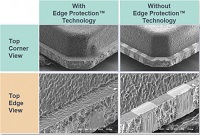Petrochemicals Synthetic Fabrics R-PET 04-04-2020 - Arhive
Petrochemicals Synthetic Fabrics R-PET
-Regulations bolster R-PET market amid coronavirus
Sustainability pledges and regulations are bolstering the market for recycled polyethylene terephthalate (R-PET), even amid the effects of the coronavirus and the crash in oil prices.
The result has kept European prices for food-grade R-PET above those for virgin bottle-grade PET, said Matt Tudball, ICIS senior editing, recycling.
He was among the speakers in the webinar Packaging Forum: Is Coronavirus Jeopardising Sustainability Efforts? It is part of a series hosted by ICIS.
Even prices for flake R-PET are higher, as shown in the following chart.
The coronavirus has led to panic-buying, which has provided additional support for food-grade R-PET, Tudball said. This is being tempered by the the sharp decline in prices for virgin PET, which has fallen because of the crash in the oil market.
Flake R-PET prices generally reflect those for bales, since the material lacks the same amount of regulatory support as food-grade R-PET, said Helen McGeough, ICIS senior analyst, recycling. Another factor dragging it down is what McGeough described as legacy misconception that recycled plastics should trade at some kind of discount.
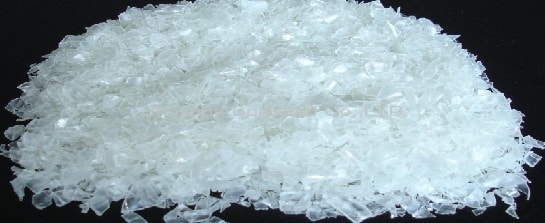
-In Asia did not reach an agreement on the March contract prices of paraxylene
Participants in the negotiation process for the approval of April paraxylene contract prices in Asia could not reach an agreement for the current month, market sources told ICIS .
According to them, the approval of the monthly contract price for the material is achieved by coordinating it with at least two suppliers and two buyers. Petrochemicals Synthetic Fabrics R-PET
The same price offers are in the region in the range of USD600-680 per tonne, CFR Asia, against counter orders at the level of USD370-380 per tonne, CFR Asia.
This is the fourth time this year, when agreement on contract prices for paraxylene in Asia has not been achieved.

-Adressing a smelly plastic recyclate problem
Plastic recyclate produced from waste packaging have to meet high sensory requirements in order to be used for new products, and it often has off-odours, some of which have not hitherto been identified.
The Fraunhofer Institute for Process Engineering and Packaging IVV has analyzed the sensory properties of post-consumer shopping bags made of low density polyethylene (LDPE) and originating from different collection systems.
More than 60 odorous substances were identified using combined chemo-analytical methods. The information gained provides a targeted strategy for avoiding off-odours.
The results of this collaborative study with the Chair of Aroma and Smell Research at the Friedrich-Alexander-Universität Erlangen-Nürnberg and the University of Alicante have now been Petrochemicals Synthetic Fabrics R-PET

-Europe chemical prices crash, 32% of refinery capacity restricted, offline
With European building block chemical contracts now settling at record decreases, and 32% of European refineries now offline or at reduced operating rates, more evidence of the damage caused by coronavirus restrictions and the oil price crash is becoming apparent.
On 31 March Europe ethylene, propylene and benzene contracts were finalised with the plummeting oil price and disrupted downstream markets leading to unprecedented drops.
There was a stunning 70% drop in the European benzene April contract price which settled at €171/tonne, a decrease of €424/tonne from March. This is the lowest since ICIS records began in 2002. Petrochemicals Synthetic Fabrics R-PET

-Covid-19 may cause 50% dip in European textile sales
An ongoing poll by EURATEX, the voice of the European textile and clothing industry, with its members shows that 80 per cent of companies are already laying off workers; and more than half of them expect a drop in sales and production by over 50 per cent, creating serious financial constraints. 1 out of 4 is considering closing down the company.
Recent Eurostat data show that the European textile and clothing manufacturing went through a difficult year in 2019, despite good retail sales and export performances. Data for 2019 show an economic slowdown in Europe, with manufacturing remaining under pressure from Brexit and trade frictions.Petrochemicals Synthetic Fabrics R-PET
Figures for the textile and clothing (T&C) industry are in line with that general situation: employment declined with over 2 per cent, and the EU27 turnover evolution turned negative for the first time since 2012-2013 with a -2 per cent setback for textiles, and a -1.3 per cent for clothing, compared to 2018.
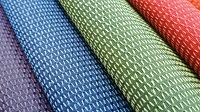
-Avery Dennison Fastener Solutions Launches Ecotach™ Recycled Apparel Tag Fasteners
A complete line of new sustainable product solutions called Ecotach™ is now available from Avery Dennison Fastener Solutions. The Ecotach line of sustainable fasteners is designed specifically to meet the needs of environmentally conscious apparel retailers, brand owners and consumers who want to reduce their environmental footprint.
Avery Dennison Ecotach recycled fasteners include rPET and rPA materials and have similar functionality as fasteners made with virgin material. Recycled rPET fasteners carry a “Recycled” logo molded onto the paddle for immediate recognition of the brand’s sustainability efforts, creating a positive image of environmental stewardship for just fractions of a cent per garment.Petrochemicals Synthetic Fabrics R-PET

Petrochemicals Synthetic Fabrics R-PET
-LANXESS pushes PA 6 as ideal fuel tank material
Materials for motorcycle tanks need to meet stringent requirements. Only very small amounts of fuel should be able to diffuse through the tank wall, so the materials need to demonstrate a high level of tenacity and ductility, particularly in the event of a crash, as well as offer high design flexibility for complex tank geometries. They should also be cost-effective to process.
BMW Motorrad’s models F 900 R and F 900 XR have been able to meet all of these requirements thanks to a single material. The tanks in both machines are made from Durethan BC550Z 900116 DUSXBL by LANXESS. Petrochemicals Synthetic Fabrics R-PET
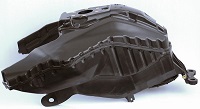
-Polyester market: which product appropriate for bottom-fishing now?
U.S. President Donald Trump expected Russia and Saudi Arabia to settle their feud over oil production soon. International oil price showed signals to rebound affected by this news, and further pushed up price of chemical products. As for polyester feedstock, price of PTA futures closed at 3,422yuan/mt, up 120yuan/mt, and that of MEG futures ended at 3,358yuan/mt, up 264yuan/mt. In view of spot market, price of PTA increased by 55yuan/mt to 3,150yuan/mt, and that of MEG rose by 140yuan/mt to 3,188yuan/mt, equivalent to the polyester cost up by 94yuan/mt to 3,761yuan/mt.
Surging oil and polyester feedstock price stimulated sales of polyester products.
Transactions of PSF hiked yesterday afternoon driven by rallying oil and feedstock price, with sales ratio mainly around 200-300%, lower around 100% and higher at 500-600%. Most buyers purchased to cover the pressing demand, cautious in having bottom-fishing. Sales of downstream polyester yarn remained slack, failing to show signals to improve. Stocks of finished goods in PSF plants were normal, at 10-11 days. Eyes are suggested to whether price of feedstock market will stabilize. Petrochemicals Synthetic Fabrics R-PET
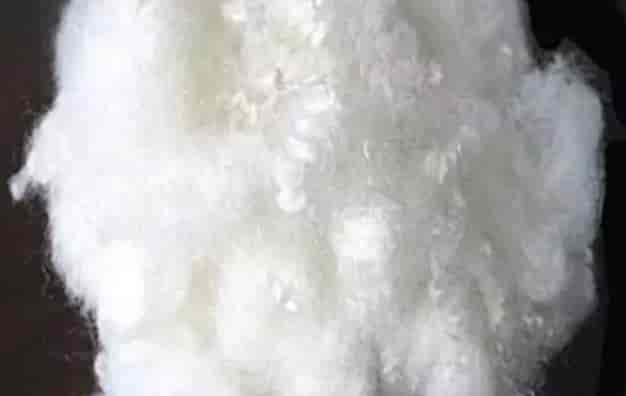
-Caprolactam enters into bottoming range
Historical benzene production margin
Taking benzene FOB Korea price as an indicator and based on naphtha CFR Japan cost and $130/mt processing cost, benzene production margin has fallen below the theoretical break-even line.
In a longer time span starting 2011, last time when benzene production margin had largely fallen below the break-even line was in the first half of 2019, when crude oil prices slumped, China domestic teapot refining projects were intensively lining up to commence production, and China local downstream chemical production was intensively shut due to the accident in Xiangshui, Jiangsu in the second half of 2019. Bearish crude oil, longer supply expectation and intensive downstream production cut had made benzene plants lose profit intensively then.Petrochemicals Synthetic Fabrics R-PET
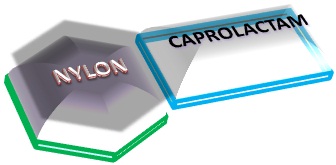
-Automotive packaging technology has robust edges
Amkor has improved the robustness of its MicroLeadFrame (MLF/QFN) package design with the development of Edge Protection technology, which protects the edges of the device during test and Surface Mount Assembly (SMA) handling operations.
This innovative package enhancement strengthens the edges of the punch MLF package, resulting in a significant reduction in test and assembly induced damage.
Amkor’s Edge Protection technology is available now on punch MLF packages in a variety of body sizes. Petrochemicals Synthetic Fabrics R-PET
